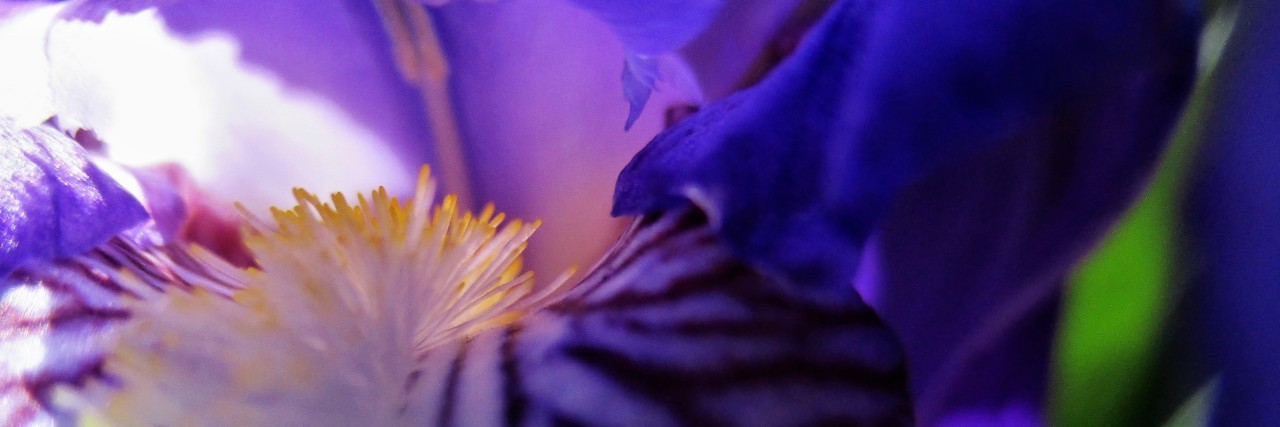In our struggles and trials in coming to terms with living with an often lifelong chronic condition, we have, each in our own manner, been confronted at least once with the question: “How can there still be a meaningful life, when so much of what constituted meaning and purpose has been taken away?”
How can a life of spending small amounts of fleeting energy between doctor appointments and basic personal chores still have any meaning? How can there be meaning when you watch life pass by, confined by your pain, your exhaustion and four walls?
A pioneer in this sensitive field was Victor Frankl, who said:
“You have your own specific purpose in life to exercise and carry out, and therein your life cannot be repeated and you cannot be replaced. Your task or mission, if you want, is as unique as your specific opportunity to implement it. And since each situation in life represents a challenge and a problem for you to solve, the question regarding the meaning of life could even be reversed: instead of asking what the meaning of your life is, you could recognize that it is you who is being asked. In truth, you are being questioned by life, and you can only answer to life by answering for your own life.”
He goes on by suggesting that we bring forth our life’s meaning by realizing values. For example, by what we create in the world and by what we give, we realize Creational Values.
And also, by what we take from the world in terms of experiences, love and wisdom we realize Experiential Values.
But now, what if you, due to circumstances of chronic illness and disability, are severely limited in both creating and in experiencing so that you can no longer realize those values? What remains of “your specific opportunity” of realizing values when the very abilities that would enable you to do so are no longer there? What then?
This is where we find a connection between the highest ranked human need in Maslow’s hierarchy: the need for self-actualization and what Frankl presents as the ultimate realization of values.
The need for self-actualization (personal growth and fulfillment) can be realized precisely then, and mostly so, when you are faced with a situation and with a suffering that cannot be altered.
I would like to carefully suggest here that there is a reciprocal relationship between the severity of your limitations and the calibre and quality of the values that can be found.
A person’s very response to the restraints on his potentialities provides her/him with a whole new realm of values which belong among the highest values. When we are willing to accept that, then an apparently impoverished life – that is, a life that can no longer engage in creative and experiential values – still offers a last, and in fact the greatest, opportunity for realizing values.
When you are confronted with unavoidable suffering and circumstances that cannot be changed, you are challenged to change yourself. The one freedom which always remains is your freedom to choose in any given moment how you respond to a situation. This is a choice of attitude.
This change begins with your awareness of your attitude, because your attitude is the last remaining area where you can still be responsible and be in control. The attitude you develop towards a fate that you cannot change gives rise to your attitudinal values.
“The manner in which you accept, the courage that you manifest in your suffering and the dignity you display in doom and disaster; they are all the measure of your human fulfillment and of the realization of your Life Purpose.”
When our biography takes a dramatic and traumatic turn due to a chronic condition, we understandably have the need to ask: “Why me, why this?” In this, we mostly associate a possible reason with a cause that lies in the past. Insights may be gained, but there is also the implication that one may have brought this illness upon oneself.
But what if reason and meaning are not found in a past cause, but in a future potential? Then, would it be possible to say that your illness has not taken away your life’s meaning, but that it is the very purpose of your life right now, and that that purpose is created by how you will live with it?
This could be considered to be one of the deepest mysteries of human existence: to transcend physical life itself by finding meaning when it appears to be most missing. Is it possible that right now, this is part of your “mission?”
In conclusion, allow me to say that I am convinced that what makes us really human is not to be measured by performance and achievement, but how we ennoble our existence in the face of deprivation and suffering.

